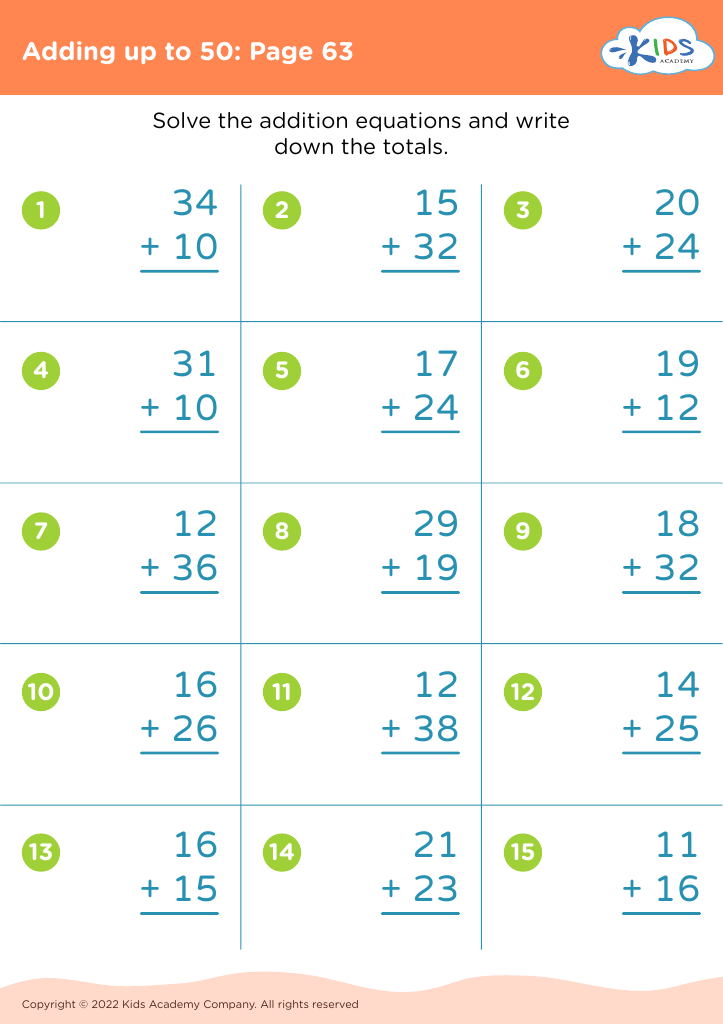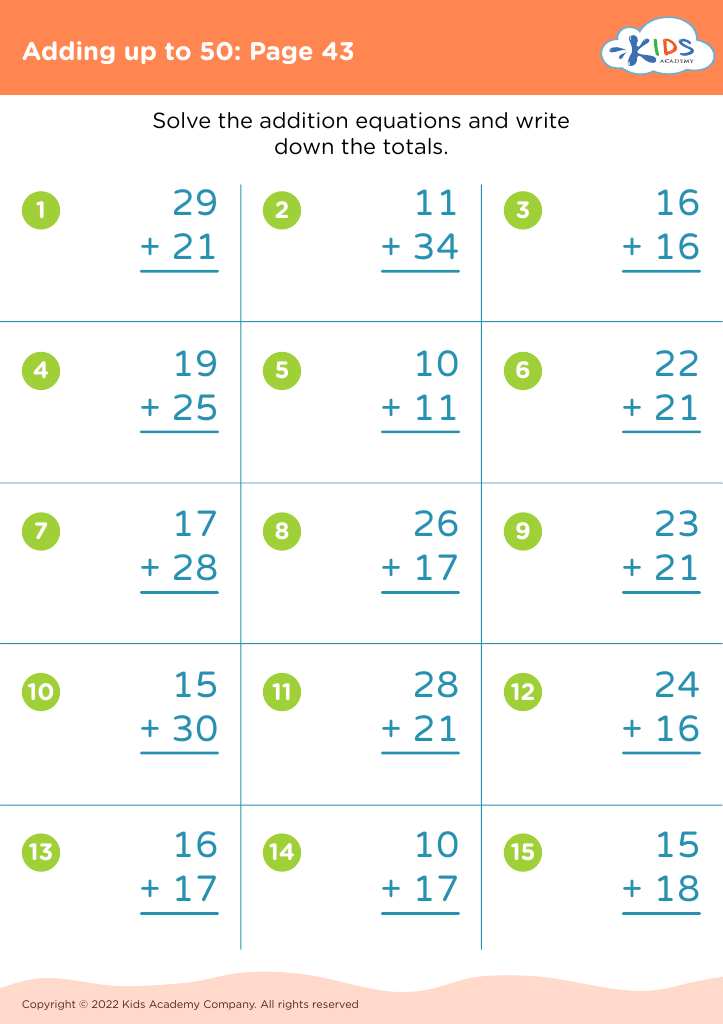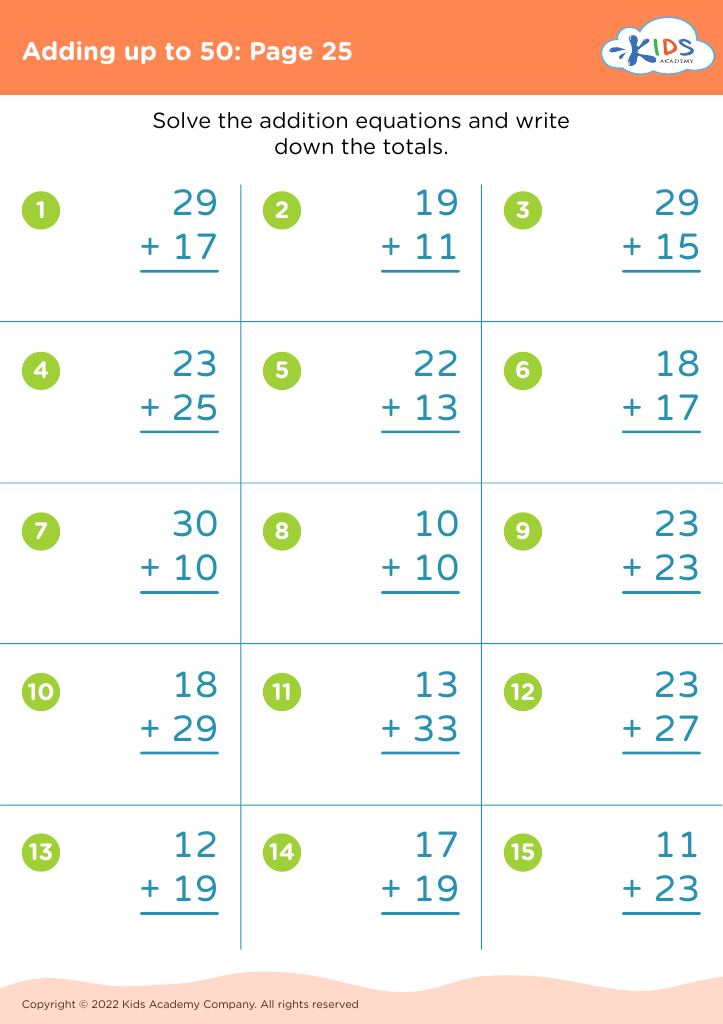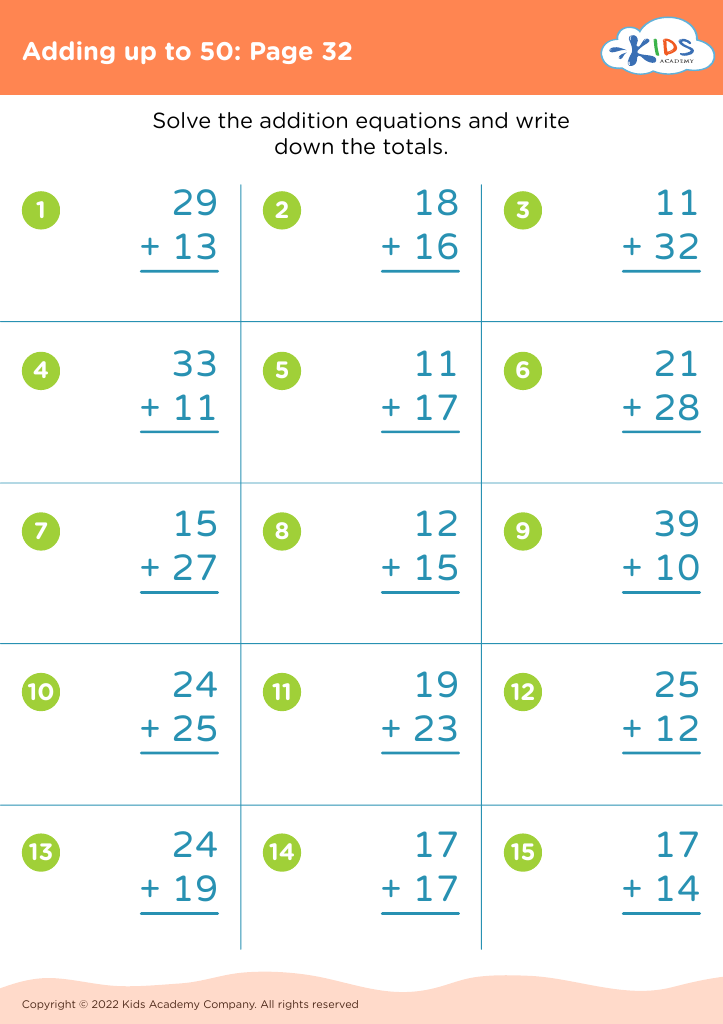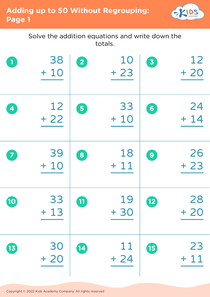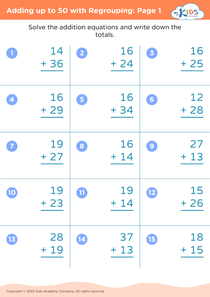Addition Practice Adding up to 50 Misc Worksheets for Ages 6-8
5 filtered results
-
From - To
Discover engaging addition practice worksheets designed for children aged 6 to 8, perfect for mastering addition up to 50! These printable worksheets provide a fun and interactive way for young learners to enhance their addition skills through a variety of exercises. With diverse activities including colorful visual aids, puzzle-solving, and real-world application questions, students will stay motivated and eager to learn. Ideal for classroom use or at-home learning, these resources cater to different learning styles, ensuring every child gets the true benefit of hands-on practice. Help your child build confidence in math while having fun with our specially crafted worksheets!
Parents and teachers should prioritize addition practice for children ages 6-8, particularly focusing on sums up to 50, as this foundational skill is crucial for their mathematical development. Mastery of basic addition equips children with the ability to solve more complex problems later in their academic journey. At this age, children are naturally curious and eager to learn, making it an ideal time to bolster their confidence in mathematics through engaging and interactive addition exercises.
Practicing addition helps children understand number relationships, enhances their problem-solving skills, and improves their cognitive abilities. As they work on these skills, children also learn to apply addition in real-life scenarios, such as counting money or measuring ingredients, making math feel relevant and applicable.
Furthermore, proficiency in addition lays the groundwork for future math concepts like subtraction, multiplication, and division. Parents and teachers can use fun and varied methods—like games, worksheets, and hands-on activities—to keep this learning engaging. By fostering a positive attitude toward math at an early age, adults can help children develop a lifelong appreciation for the subject and boost their overall academic confidence. Thus, investing time in addition practice is essential for nurturing well-rounded learners.
